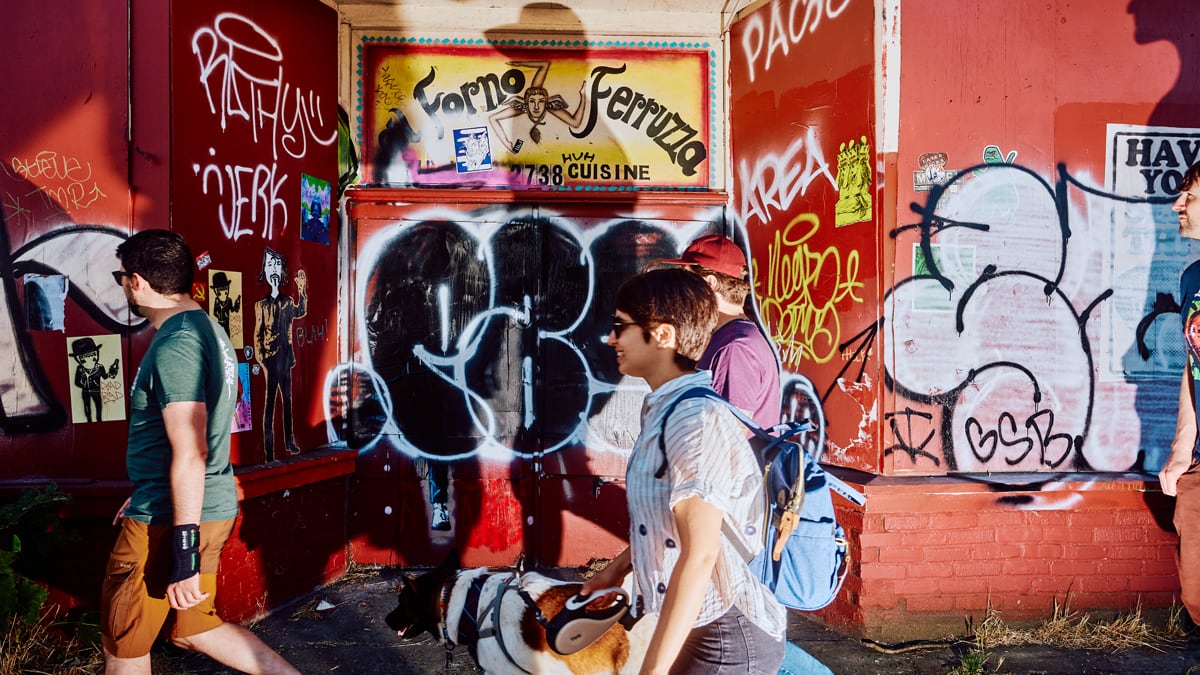BATTLE OVER SCHOOL’S GREENSPACE INTENSIFIES: Neighbors have for decades used the massive field at Hosford Middle School in Southeast Portland as a de facto dog park. But earlier this year, Portland Public Schools erected a chain-link fence around the field and locked the gates (“Freedom Fido,” WW, June 22). For six months, dog owners have been cutting locks, entering the field and getting in heated confrontations with school security guards. And the battle has escalated since school resumed last week. In a recent letter to school families and neighbors, Hosford principal Jill Liddle wrote that school staff has been regularly harassed, followed and threatened. “We will be seeking no trespassing notices to those who have engaged in destruction of property, harassment and/or threats,” Liddle warned. Video shared with WW shows a campus security guard asking a man walking his dog to keep the pet on a leash. The man starts screaming at the guard: “Fuck you! We hate you! We fucking hate you! The whole community despises you now! We’re going to keep cutting this shit open day after day!” The guard reminds the man it’s his own tax dollars paying for the repairs. The dog owner approaches him, yelling, “Why don’t you shut your fucking mouth? You’re obviously fucking unhinged!”
GRAFFITI COMPLAINTS ARRIVE AT ASTONISHING CLIP: Portlanders are fed up with graffiti that has blanketed the city in the wake of 2020′s civil unrest—and they’re letting the city know. As of last week, nearly 10,000 reports of graffiti had poured in to City Hall, from tags (“Casio,” “Slide,” “Angel Dust”) scrawled near the burned-out Roseway Theater in Northeast to one-way signs downtown rendered illegible with spray paint. Analysis of a city database obtained by WW finds the number of graffiti reports this year has already eclipsed last year’s total and is more than five times the number received in 2020. Mayor Ted Wheeler used an emergency order earlier this year to take control of the city’s anti-graffiti program. “We are in the process of planning a more assertive response,” says Tom Miller, director of livability and sustainability for Wheeler’s office.
CAPITAL GAINS TAX MEASURE PUNTED TO MAY: Multnomah County’s wealthiest residents have one less worry on their minds this November. A campaign to get a controversial tax measure on the November 2022 ballot has moved the goalposts to the May 2023 ballot instead. WW learned of the change in plans as the deadline approached this week for finalizing ballot measures that will appear on the November ballot. The initiative, if passed, would impose a 0.75% tax on capital gains—profits investors earn on the sale of assets such as stocks, bonds and real estate—in order to fund free eviction representation for all Multnomah County residents. The idea immediately met opposition from the Portland Business Alliance, which unsuccessfully challenged the initiative in court. Eviction Representation for All, the group behind the measure, tells WW it’s close to the signature threshold: “We are very close to wrapping up our signature drive and submitting them for verification,” a representative says. The group would not say how many signatures it had collected so far.
METRO REBUKES RATE OF HOMELESS SPENDING IN CLACKAMAS COUNTY: A report released last week on first-year spending of a tax to aid homeless people in the tri-county area showed Clackamas County had spent only 6.6% of its available funds. On Friday, Metro Council President Lynn Peterson and Metro Councilor Christine Lewis said in a statement that the committee tasked with overseeing spending of the tax would “identify and daylight the impediments and barriers to spending that existed in Clackamas County in the first year of the program—both operational and political.” That’s a not so thinly veiled rebuke of Clackamas County Chair Tootie Smith, a Republican whose relationship with more liberal jurisdictions is often strained. In a statement to WW last week, Clackamas County said it didn’t have infrastructure in place to swiftly allocate the dollars. County spokeswoman Kimberly Webb added that the county “tends not to spend money before we have it.” Multnomah County spent 38% of its available funds and Washington County spent 24%. Overall, the report said 1,639 homeless people were housed during the first year of the 10-year tax on high-income earners and businesses.

